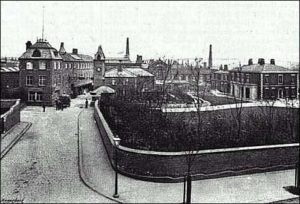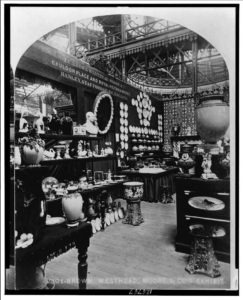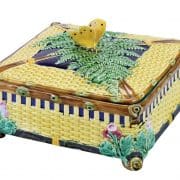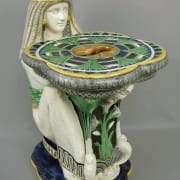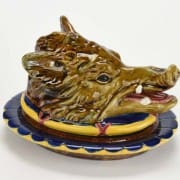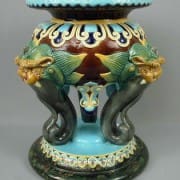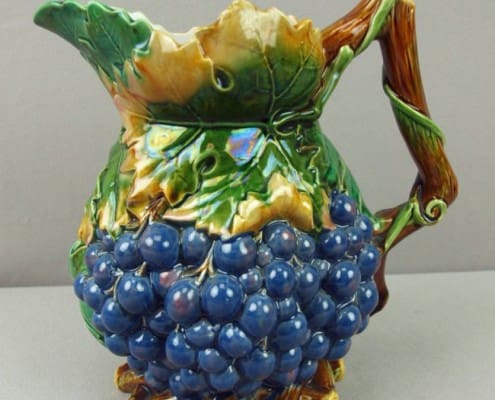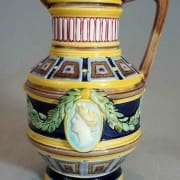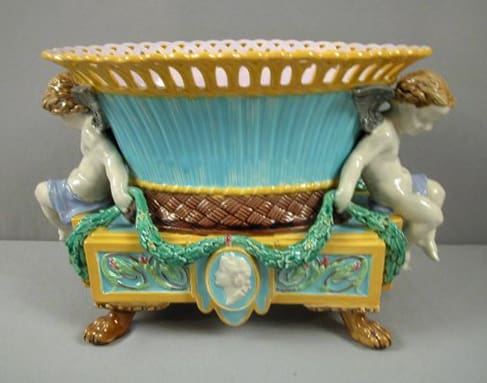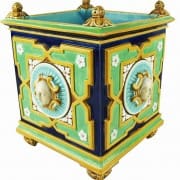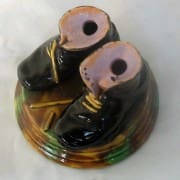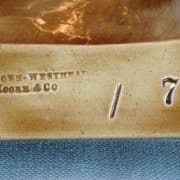T. C. Brown-Westhead, Moore & Co.
The Cauldon Works in Hanley was founded by Job Ridgeway in 1802.
After a complicated succession of partnerships, the firm became T. C. Brown-Westhead, Moore & Co. in 1862. Thomas Chappel Brown-Westhead attended to administration and finance of the enterprise, while William Moore supervised the manufacturing side of the business. Following Moore’s death in 1866, his brother James assumed management of the pottery. The firm acquired the Victoria Works in 1872 and the production of large-scale pieces of majolica was advanced at that facility. By 1882 the combined Cauldon and Victoria Works employed some 1500 skilled workers and was the largest pottery in England. The firm remained in business until 1920, when it became Cauldon Potteries Ltd.
Brown-Westhead & Moore marketed their wares aggressively in America, including a large display of majolica at the 1876 Centennial Exhibition in Philadelphia.
Displayed at the Paris Exhibition of 1878 were life-sized models of tigers, swans, dogs, cats and other animals surrounded by ornate foliage. The firm employed several noted modelers including Antoine Boullemier who had previously worked at Minton. While majolica comprised only a small part of the firm’s output, the quality of their wares was outstanding and majolica production continued through the 1880’s.
Majolica was not always marked, but often bears a pattern number and impressed marks T.C. BROWN-WESTHEAD, MOORE & CO., B.W.M., or B.W.M. & CO.
Photo Credits:
Strawser Auctions
Live Auctioneers
Ebay images
Madelena Antiques
Antiques from Trilogy
Philppe Meunier & Juan-Alonso Defrocourt
Karmason Library

